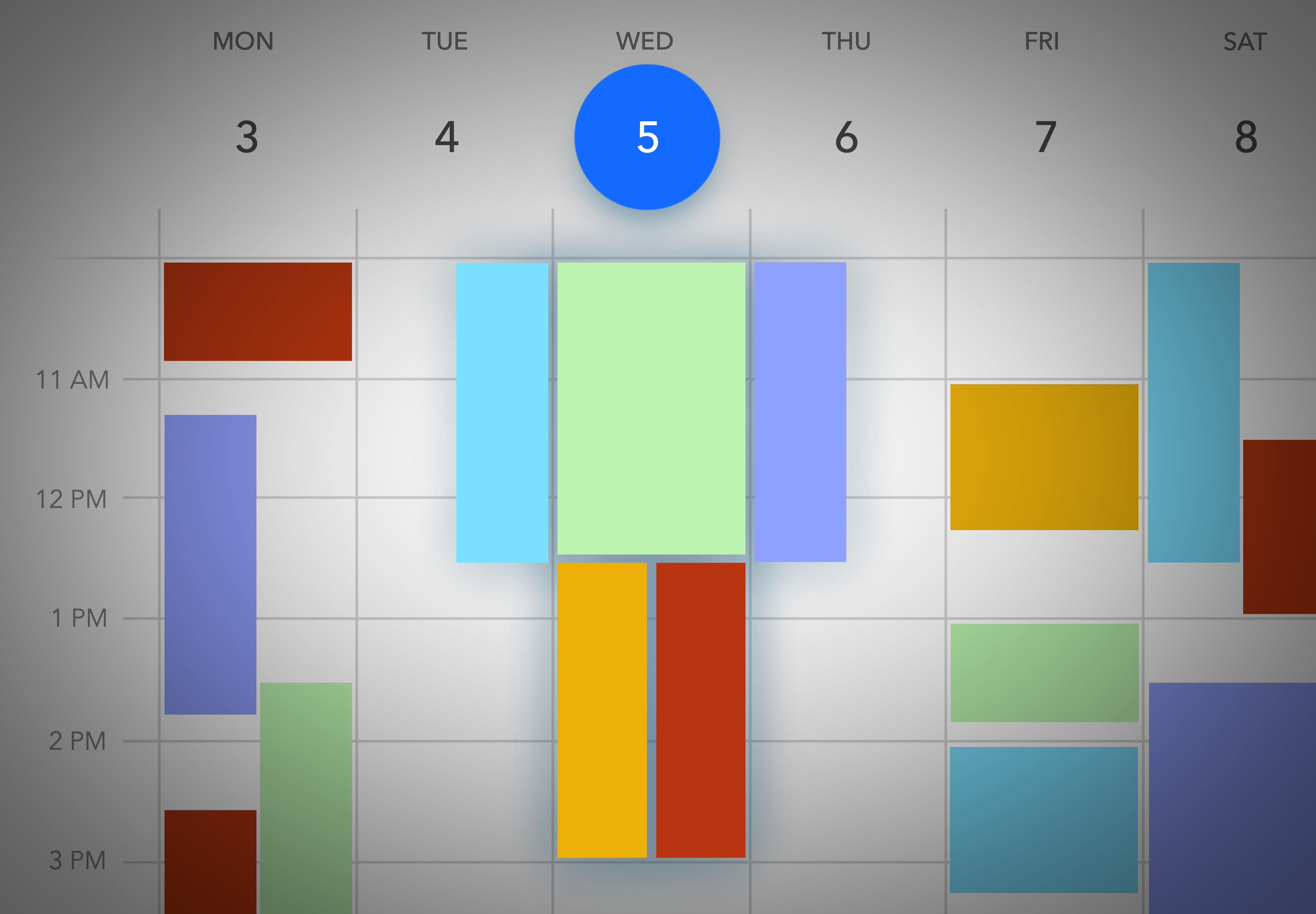Georgetown’s diverse religious and political environment is evidenced by many things: the presence of not only traditional Catholic gathering spaces but also those of other Abrahamic and Eastern religions; the variety of student organizations spanning the entire political spectrum; the sexual tension between the H*yas for Choice and Right to Life booths tabling next to each other in Leavey. However, one belief system transcends all, uniting people between left and right, theist and atheist: the capital G Google Calendar. The uniquely Georgetown practice of worshiping the almighty Google Calendar imposes negative consequences upon our lives under the guise of a productivity aide.
I am not here to espouse Ludditean viewpoints of rejecting technology. Google Calendar—or GCal, as it is often affectionately dubbed—is undoubtedly a useful organization tool, especially for students. There are certainly benefits to visually dividing up one’s day in color coordinating blocks and receiving phone notifications of events, and I fully utilize the service to keep track of myriad life happenings. But the way Georgetown students use it is borderline obsessive, perhaps straight up deviant.
This was evidenced by my hometown friends’ flabbergasted reactions when I sent them a GCal invite to hang out over winter break. “You know, we can just hang out without putting it on our calendars,” one of my friends said—a blasphemous suggestion to my ears. I attempted (in vain) to defend my actions by explaining that lots of friends from Georgetown GCal their social, gym, meal, and even sleep times. How else do you make sure you’ve gotten sufficient rest in between Hillternships and networking events? Here at Georgetown, absolutely anything can become a GCal-able event, from homework to club events to brunch. Philosophers wonder if trees that fall in a forest with no witnesses actually make a sound. Here at Georgetown, we have our own version of this brain tickling metaphysical question: if you do something and don’t record it on your Google Calendar, did it actually happen?
However, perhaps the G-Cal non believers do have a point. As helpful as Google Calendar is, Georgetown students’ use, or perhaps abuse, of the scheduling tool perpetuates a binary mindset that views time as something to be subjugated and made “productive.” Google Calendar has become a way of imposing control over our chaotic lives, categorizing our experiences, and giving us a sense of security in our everyday actions. Good, productive students carpe their diem by filling their day with classes, internships, coffee chats, and brunches. Upon seeing a day free from color coordinated blocks, we feel a sense of unease, or get FOMO by looking at the jam-packed calendars of our friends.
Along this line of thinking, GCal can easily veer into frenetic obsession. When one sends a GCal invite for the purpose of hanging out in the living room, it raises the question of whether we are controlling our lives or if we are being controlled. What does it say about us if we are incapable of casually chatting with our housemate without documenting it on our calendars? In situations like these, whatever agency we derive from sending those invites is negated by the anxiety that we feel in the absence of a GCal record. Google Calendar becomes a security blanket, giving legitimacy and validity to the things that we choose to fill our days with.
Furthermore, it’s plain weird how much we’ve professionalized everything, especially our friendships, through GCal. Perhaps it started off benignly as an ironic bit mocking the suffocating pre-professional culture on campus. My friends and I often jokingly quip, “let’s touch base on this next week, colleague,” or other similar phrases, parroting the corpspeak we hear at club and career fairs. Sending GCal invites has become a similar form of commentary. However, looking at our habits, the ironic performance comedy is no longer ironic.
In addition to sending invites for every casual conversation or stroll, Georgetown students commonly schedule and send recurring weekly meeting requests to hang out with their friends. This imposes an artificial rigidity upon our social lives that comes with confusing implications. Are we so busy that we need to forcibly pencil in time to hang with friends, lest we forget? Am I allowed to hang out with my friends outside of these designated times? More broadly, the fact that I have to scour peoples’ GCals to find precious openings of uncolonized time and send an invite if I want to see them fills me with annoyance and dread. It is terribly reminiscent of scheduling a doctor’s appointment. This practice turns our friendships into an obligation similar to attending class or office hours. It also kills any spontaneity or casualness in socialization, as the GCal invite demands precise premeditation.
By viewing time as a resource to be conquered instead of something to be experienced, everything we do turns into a struggle against the concept of “unproductivity,” with Google Calendar being the weapon of choice in this battle. This is, of course, a fruitless struggle: for anxious students chasing glory in academic and professional arenas, there is a never-ending universe of things we should be doing to fulfill those goals. UnGCal-ed leisure time comes at the opportunity cost of studying for exams or preparing for interviews. When you only have a hammer, everything looks like a nail—likewise, when our lives are defined through the lens of GCal, everything becomes defined by its relationship to the scheduling apparatus. Google Calendar overfixation cheapens the quality of our social interaction and robs us from fully appreciating the moment.
Many of us may be in denial, but it’s time to face the truth of the cult of the GCal. Ritualistic calendar invites have bled into the everyday fabric of our lives here at the Hilltop, to the point where it has become socially taboo to not send one for the most casual of events. In our pursuit of productivity, worshiping the false idol of Google Calendar has actually ended up detracting from the individual events that we seek to categorize and subjugate.
Finding the optimal Google Calendar use case that balances organization and authenticity is a tricky process, and I’m still trying to figure it out. We all ought to take a moment to critically examine their relationship with the calendar tool and evaluate the role it plays in our lives. I’m starting small—if I find myself with an obligation-free afternoon, I’ll spontaneously call a friend to see what they’re up to. I’ve found that simply asking to go on a walk or go spend an afternoon playing around in the Maker Hub, no GCal invite attached, has been met with considerable success. These small interactions have helped me realize that meticulously micromanaging my calendar was not as empowering as GCal culture makes it seem. Text that friend, spend an afternoon at the library, or go to Trader Joe’s without putting it on the schedule. You just might feel more, not less, in control of your life.






